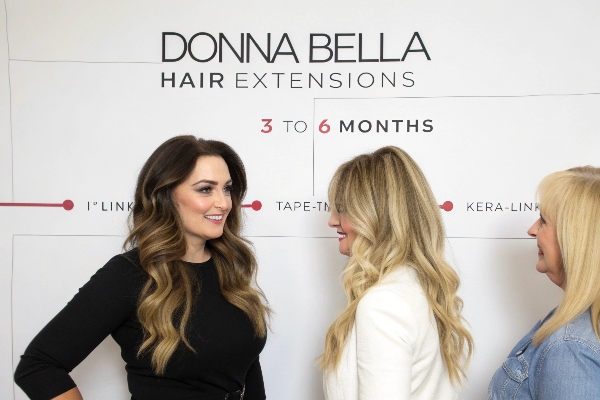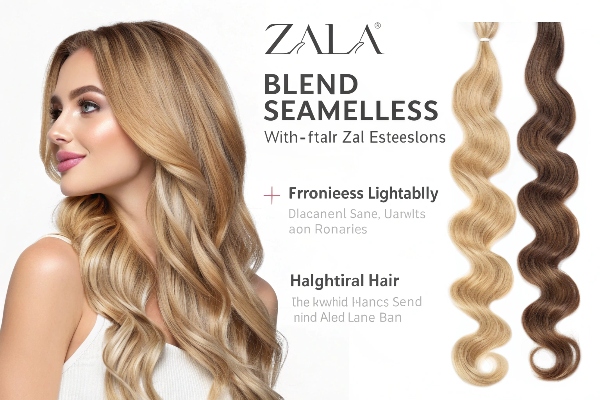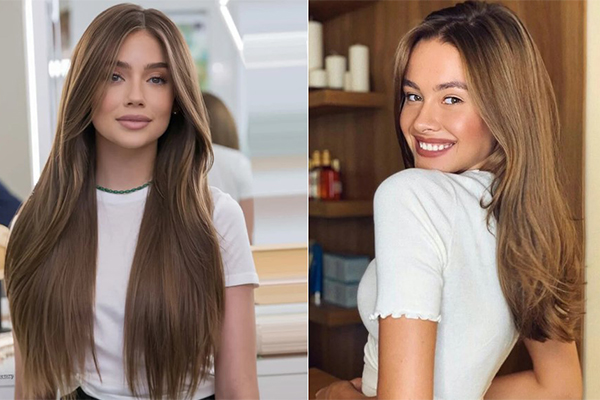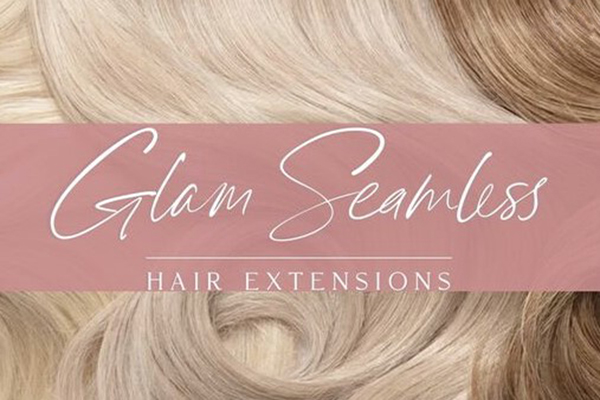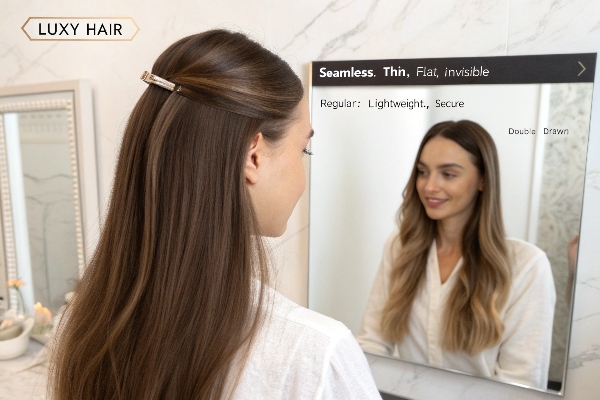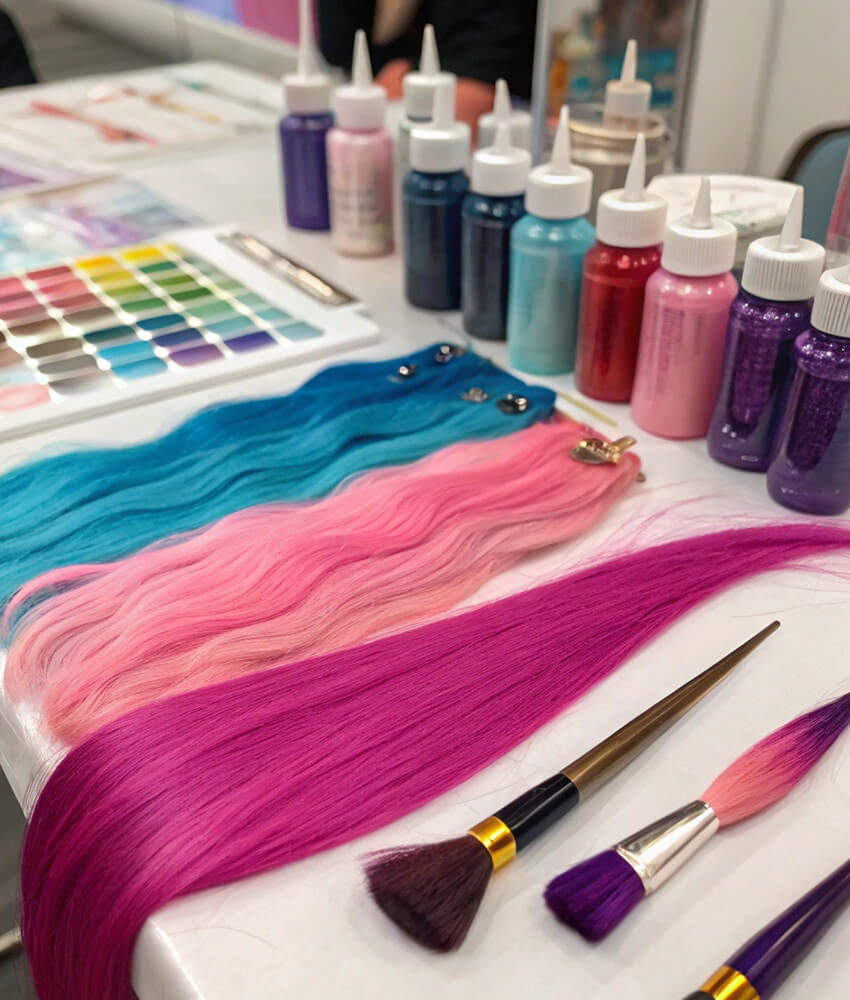Hair loss can be alarming and affects your confidence. The quest for the best solution can be stressful with various advice available. Understanding the root cause is essential to find the right remedy.
To stop hair from falling out, it’s important to address nourishment, maintain proper scalp health, reduce stress, and consult professionals for personalized treatments. Identifying and tackling the underlying issue is crucial for effective management and reversal of hair loss.
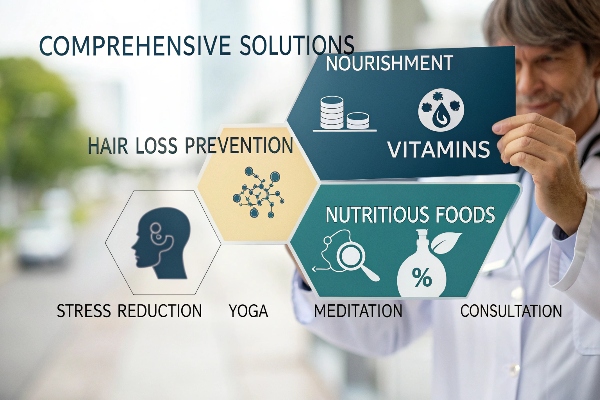
Determining the cause of hair loss is the first crucial step. Read further to discover comprehensive solutions and strategies to regain your hair’s health and luster.
What is the best solution for hair loss?
Noticing clumps of hair in the shower can be disheartening. It’s crucial to find the right approach to unveil those luscious locks again.
The best solution involves a multifaceted approach: including dietary changes with nutrient-rich foods, treatment courses with appropriate shampoos and medications, and addressing any underlying health issues. Consulting with a dermatologist can offer personalized strategies to promote regrowth and minimize further loss.
For significant regrowth, it’s important to take a holistic view, examining your lifestyle, stress levels, and daily hair care routine. Understanding your body’s unique needs may lead to adopting targeted products or treatments. Here’s a breakdown of key areas to focus on:
| Solution Aspect | Description |
|---|---|
| Nutrition | Load up on proteins, iron, and vitamins |
| Hair Care Products | Use quality shampoos and avoid harsh chemicals |
| Medical Treatment | Consider medications like Minoxidil |
| Health Assessment | Check for hormonal imbalances and deficiencies |
What is the main cause of hair loss?
It’s scary noticing your brush is full of hair. So why is it happening in the first place?
The main causes of hair loss include genetics, hormonal changes, nutritional deficiencies, stress, certain medical conditions, and inappropriate hair care practices. Each individual’s triggers are different, making understanding personal factors crucial in addressing hair loss.
Hair loss can result from multiple internal and external factors, and understanding these can prevent further damage. Genetics play a significant role with conditions like androgenetic alopecia1 often hereditary. Hormonal imbalances can be due to pregnancy, menopause, or thyroid issues. Stress and nutritional gaps exacerbate the situation, alongside conditions like alopecia areata2 or scalp infections:
| Causes | Explanation |
|---|---|
| Genetics | Hereditary pattern baldness common in families |
| Hormonal Changes | Pregnancy, menopause, thyroid issues |
| Nutritional Gaps | Lack of iron, vitamins, protein |
| Stress & Lifestyle | Chronic stress and poor lifestyle choices |
| Illness & Medication | Scalp infections and side effects of medication |
Can you reverse hair loss?
Seeing your scalp getting more attention than your strands can be distressing. But can you reverse hair loss effectively?
Hair loss can often be reversed with appropriate treatment, proper nutrition, reducing stress, and eliminating harsh hair care practices. Early detection and intervention are critical to increasing the chances of regrowth. Professional guidance, along with treatments like Minoxidil and Finasteride, can be effective for many.
Reversing hair loss hinges on addressing the root cause early. Timely intervention with appropriate medications and lifestyle changes can lead to promising results. Treatments like hair transplants or PRP therapy are available, alongside natural methods of promoting growth through essential oils and scalp massages. Consistency and patience are vital:
| Reversal Methods | Details |
|---|---|
| Prompt Intervention | Consult at first signs; early treatment is effective |
| Medications | Minoxidil/Finasteride can stimulate growth |
| Natural Remedies | Oils, massages, and lifestyle adjustments |
| Professional Methods | Hair transplants or PRP therapy as advanced options |
What vitamin am I lacking if my hair is falling out?
Running fingers through your hair to find them pausing on a clump? Nutrients might be the key.
Lack of biotin, iron, vitamin D, and zinc often contribute to hair thinning and loss. Providing your body with these essential vitamins through a balanced diet or supplements helps maintain healthy hair growth and prevent further loss.
Vitamins play a crucial role in maintaining the health of hair. Deficiencies can lead to fragile and easily breakable hair. Iron aids hemoglobin in carrying oxygen to hair follicles. Vitamin D assists in the creation of new hair follicles. Biotin strengthens hair, while zinc contributes to tissue growth and repair:
| Vitamins | Functions |
|---|---|
| Biotin | Strengthens hair follicles |
| Iron | Supports oxygen transport to scalp |
| Vitamin D | Promotes follicle health |
| Zinc | Aids tissue repair and growth |
What shampoo is good for hair loss?
Choosing the right shampoo is pivotal, as it’s the foundation of hair care. But among endless options, which truly helps?
Effective shampoos for hair loss include those with ingredients like ketoconazole, minoxidil, and caffeine. These shampoos stimulate blood flow to the scalp, strengthen hair roots, and help maintain a healthy scalp environment conducive to growth. Opt for sulfate-free options to reduce hair damage.
Picking the right shampoo is crucial as it can either hinder or foster hair growth. Always check for ingredients that balance your scalp’s pH and avoid ones filled with harsh chemicals. Shampoos that enhance blood circulation and augment follicle strength, such as those containing caffeine or ketoconazole, are preferred:
| Ingredient | Benefits |
|---|---|
| Ketoconazole | Dandruff control and anti-inflammatory effects |
| Minoxidil | Stimulates scalp blood flow and growth |
| Caffeine | Energizes hair roots and promotes stronger hair |
| Sulfate-free | Reduces scalp irritation and hair breakage |
What to eat to stop hair fall?
What you’re putting on your fork may be more important than what’s in your bottle when managing hair health. But what should be on your plate?
Eat foods rich in proteins, omega-3 fatty acids, iron, zinc, and vitamins like B, C, D, and E to prevent hair fall. Nuts, seeds, leafy greens, fish, eggs, and berries help ensure adequate nutrient intake and promote healthy hair.
Your diet directly impacts your hair health. Proteins are hair’s building blocks, found in abundance in eggs and legumes. Omega-3 fatty acids from fish maintain hair’s natural oils. Iron-rich foods like spinach and lentils improve blood circulation, while vitamin C from citrus fruits aids in collagen formation:
| Nutrient Sources | Foods |
|---|---|
| Protein | Eggs, chicken, beans |
| Omega-3 | Chia seeds, walnuts, fish |
| Iron | Spinach, lentils, tofu |
| Vitamins | Oranges, almonds, sweet potatoes |
What organ is responsible for hair loss?
The trail of hair can leave you questioning your body’s internal workings. Is a specific organ to blame?
The endocrine system, specifically the thyroid gland, significantly influences hair health. Hormonal imbalances and poor thyroid function often correlate with hair loss. Proper thyroid activity ensures adequate hormone levels, maintaining hair growth cycles and vitality.
Key contributors to hair health are interlinked with organ function. The thyroid gland3, when not performing optimally, can lead to hypothyroidism or hyperthyroidism, both associated with hair thinning. Hormones like androgen and estrogen also play roles, governed by endocrine organs like ovaries or testes:
| Endocrine Organs | Roles in Hair Health |
|---|---|
| Thyroid Gland | Regulates metabolism and effects on hair growth |
| Pituitary Gland | Manages hormone levels for overall bodily functions |
| Ovaries/Testes | Balance androgens affecting hair follicles |
Can shampoo cause hair loss?
Browsing the store, searching for shampoo, skepticism strikes. Can the solution itself be the problem?
Some shampoos contain harsh chemicals or allergens that can contribute to hair loss by damaging the scalp and hair follicles. Ingredients like sulfates, parabens, and certain fragrances could irritate sensitive scalps, disrupting the hair growth cycle. Opting for mild, organic shampoos can alleviate these issues.
Understanding how shampoo affects hair requires scrutinizing ingredients. Chemicals like sodium lauryl sulfate strip away natural oils, leading to dryness and breaking. Parabens can disrupt hormonal balance. When choosing shampoos, look for labels that emphasize being free from these harsh compounds. Regularly washing hair with such shampoos further exasperates hair fragility:
| Ingredient Concerns | Effects on Hair |
|---|---|
| Sulfates | Removes natural oils causing scalp dryness |
| Parabens | Possible endocrine disruptors |
| Artificial Fragrances | Allergens that can irritate the scalp |
Using hair extensions or wigs
Hair extensions and wigs offer a fast and effective solution for hair loss, allowing you to achieve thick, long hair in just minutes. For those experiencing minor hair thinning, hair extensions can seamlessly cover small patches while adding volume and thickness.
If you’re dealing with a localized bald spot, a hair topper serves as an excellent choice, providing natural coverage and blending effortlessly with your existing hair.
In cases of significant hair loss, a wig becomes the ideal option, granting you an entirely new look while ensuring comfort and confidence. Explore these versatile options to enhance your hairstyle and boost your self-esteem effortlessly.
Conclusion
Comprehensively addressing hair loss involves understanding causes, exploring dietary and hair care solutions, and tailoring treatments to personal needs. Adopting a holistic approach with professional guidance often yields the best results. Hair loss isn’t merely a cosmetic issue but a signal to attend to overall well-being.
Understanding androgenetic alopecia is crucial for effective treatment options and prevention strategies. ↩
Exploring alopecia areata can provide insights into its causes and the latest treatment advancements. ↩
Understanding the thyroid’s impact on hair can help you manage hair thinning effectively. ↩

